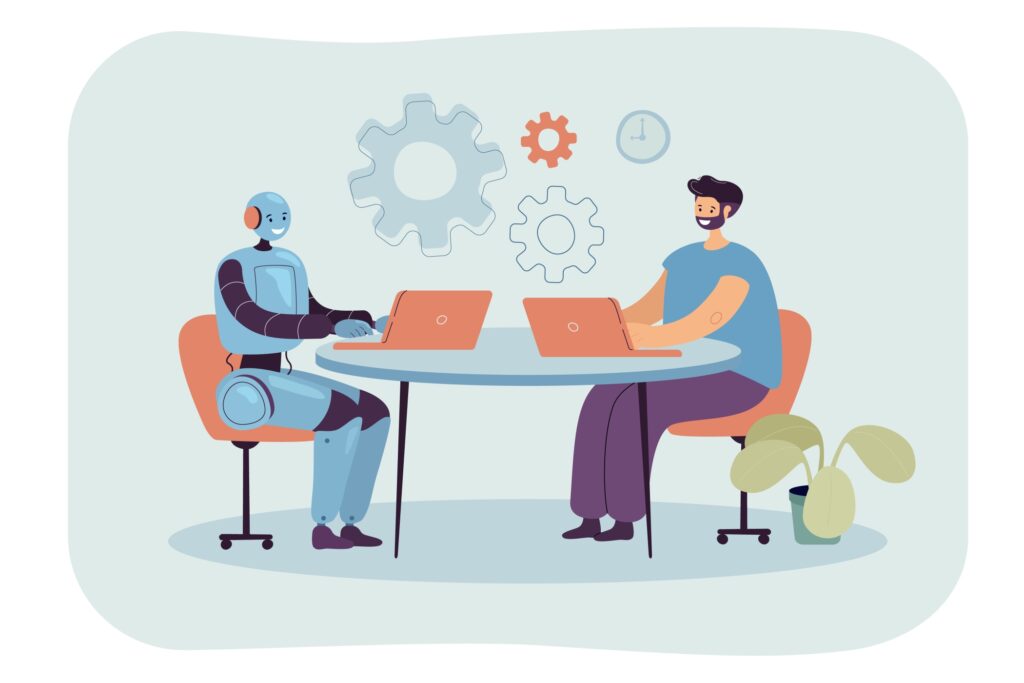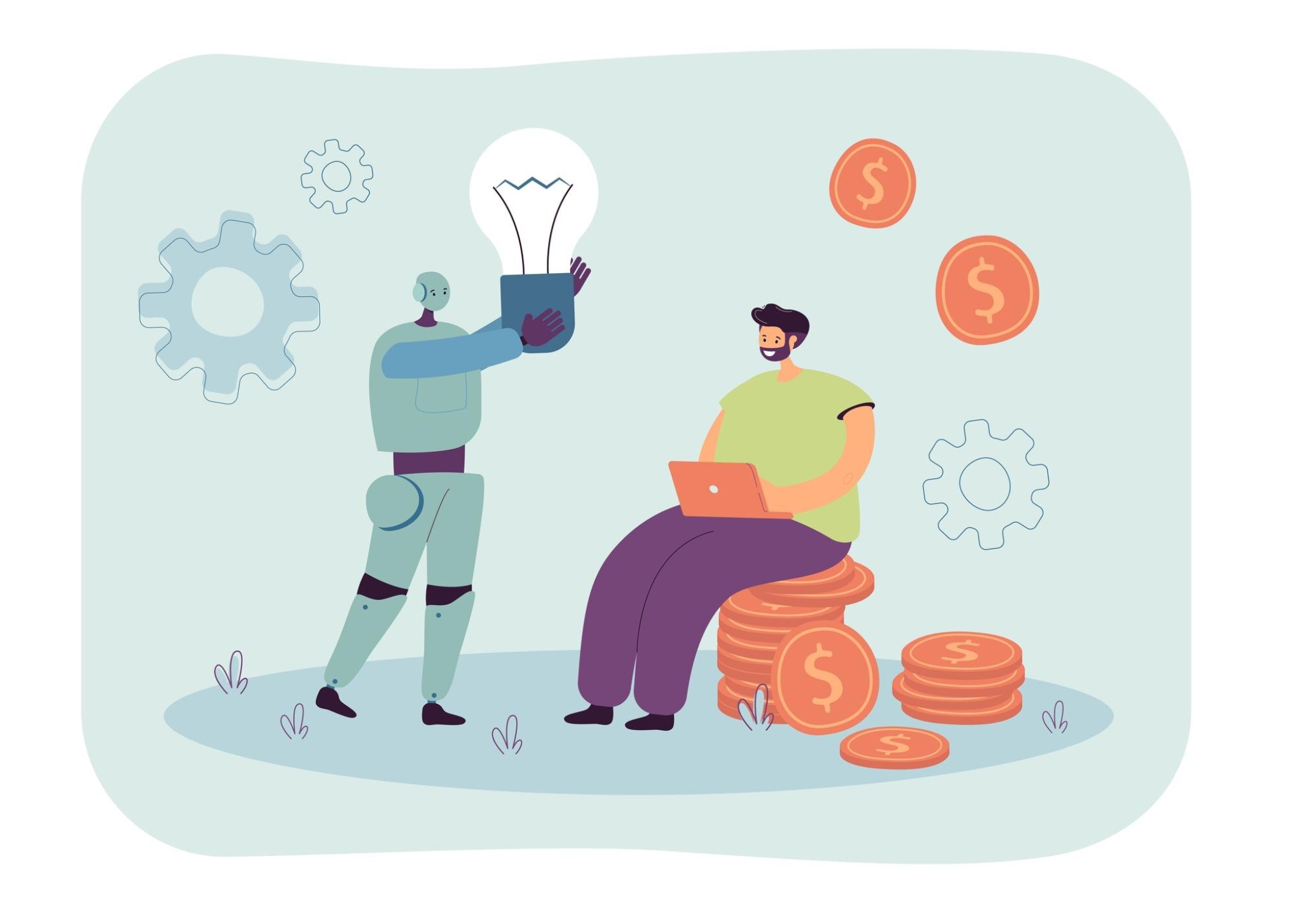A Glimpse into the Future of Business
Artificial intelligence emerged from the realm of science fiction and found its place in the real world more than half a century ago. Initially aimed at enabling machines to perform logical reasoning, this discipline has since expanded to encompass more complex capabilities such as learning, perception, and natural language processing. Today, artificial intelligence is present in nearly every aspect of our daily lives, and this advancement heralds a new era in human history. The transformation brought about by AI is leading to significant changes, particularly in the business world. In this article, we will examine these changes under four main themes: efficiency and automation in business processes, workforce and employment, innovation in business models, and ethics and governance.
Artificial intelligence has moved beyond the boundaries of science fiction to create a profound transformation in our lives today.
1. Efficiency and Automation in Business Processes
Industrial revolutions have brought about transformational changes in production methodologies. The first industrial revolution marked the transition from manual and physical labor to machine power, while the second introduced innovations such as electricity and steel production. The third revolution was characterized by the evolution of mechanical and electronic technologies into digital systems. Following World War II, humanity experienced an unprecedented pace of development, and human labor increasingly became supported by machines.
With the advent of Industry 4.0, the development of robotics and intelligent systems marked the beginning of the digital age in manufacturing. This transformation led to a redefinition of professions and working methods. Industry 5.0, on the other hand, aims to further enhance productivity by integrating technology with the human element, focusing on the fusion of human creativity, emotional intelligence, and experience with technological capabilities.
Artificial intelligence technologies represent the latest advancement with the potential to significantly improve efficiency and quality in industrial settings. As electronics and automation continue to evolve, AI is constantly finding new areas of application. In industry, the ongoing development and expansion of electronics and automation have led to increased productivity and quality, and AI applications are pushing these gains even further.

However, beyond sectors such as the automotive industry, which has long played a leading role in technological advancement and offers broad R&D opportunities, the widespread adoption of AI in other industries is likely to take more time. Moreover, it is foreseeable that the extent to which societies benefit from these developments will vary from country to country.
Ultimately, societies that are unable to develop their own AI technologies will need to import and implement them. Nevertheless, the increasing use of AI in industry will undoubtedly enhance productivity, reduce workplace accidents in manufacturing processes, and minimize associated value losses.
In the field of customer service, chatbots and virtual assistants improve the customer experience by answering inquiries around the clock, reducing the need for human intervention. In the financial sector, AI algorithms analyze large datasets and play a key role in fraud detection and financial risk management. In manufacturing, the advanced robots used in Tesla’s car factories have largely automated the vehicle assembly process, increasing both speed and quality. These robots perform tasks such as heavy lifting and precise assembly faster and more accurately than humans. In customer service, Bank of America’s virtual assistant, Erica, has transformed the field by enabling customers to perform basic banking transactions, access account information, and receive immediate answers to frequently asked questions.
The impact of artificial intelligence on the business world, through increased efficiency, the creation of new job opportunities, innovation in business models, and emerging responsibilities in ethics and governance, is profoundly reshaping the structure of societies and economies.
2. Workforce and Employment
The effects of artificial intelligence on the workforce are complex. On one hand, some jobs are expected to disappear due to automation; on the other hand, new job opportunities and professions are emerging. For example, roles such as AI specialists, data scientists, and ethics professionals are becoming increasingly important with the rise of artificial intelligence. However, workers in low-skilled or routine jobs face a higher risk of job loss. This situation underscores the need for workforce reskilling and the development of skills aligned with the demands of the evolving labor market. According to LinkedIn’s 2020 “Emerging Jobs Report,” AI specialists and data scientists are among the fastest-growing professions, indicating a rising demand for skills in artificial intelligence and data analytics. Amazon, for instance, has committed $700 million to retrain more than 100,000 employees in fields such as cloud computing and machine learning by 2025.

3. Innovation in Business Models
Artificial intelligence is driving fundamental changes and innovations in business models. AI-powered personalization, for instance, is improving customer experience and increasing sales in the retail and e-commerce sectors. In healthcare, AI-based diagnostic and treatment methods are transforming patient care. Furthermore, artificial intelligence is reshaping the sharing economy and service industries, enabling the emergence of more flexible and customer-centric business models. In retail and e-commerce, Amazon enhances the shopping experience and boosts sales through AI-driven personalization algorithms. These recommendation engines suggest products based on users’ past shopping behavior and the preferences of similar customers. In healthcare, Google’s DeepMind Health division uses AI-based systems to diagnose eye diseases, helping doctors make faster and more accurate diagnoses.
Artificial intelligence is now present in nearly every aspect of our daily lives, and this advancement signals the beginning of a new era in human history. This transformation brought about by AI is leading to significant changes, particularly in the world of business.
4. Ethics and Governance
The integration of artificial intelligence into the business world raises important ethical and governance-related questions. Issues such as the transparency of AI decision-making processes, data privacy, algorithmic bias, and accountability require the development of ethical principles and regulatory frameworks. Companies and governments are responsible for implementing appropriate policies and regulations to ensure the ethical use of AI and prevent potential harms. As a result, the impact of AI technologies on the business world is multifaceted, offering both opportunities and challenges. For businesses, employees, and society to benefit from this transformation, it is essential not only to embrace technological innovation but also to focus on skill development, ethical standards, and appropriate policy frameworks. Using the potential of AI in a responsible and equitable manner is critical for the future of both the business world and society.
IBM’s AI Ethics Board aims to uphold ethical standards in the company’s AI projects and make the decision-making processes of algorithms more transparent. Such committees contribute to the accountability and transparency of AI applications. From a data privacy and security perspective, the General Data Protection Regulation (GDPR) introduces strict rules on how AI systems handle personal data, ensuring that user privacy is protected.
In summary, artificial intelligence has moved beyond the boundaries of science fiction to become a transformative force in our lives. Initially limited to performing simple logical operations, today’s AI technologies successfully mimic many aspects of human intelligence, including learning, perception, and natural language processing. With its impact on increased efficiency, the creation of new job opportunities, business model innovation, and new responsibilities in ethics and governance, AI is deeply reshaping the structure of societies and economies. This technological advancement is not only improving business processes but also paving the way for innovations that enhance the quality of human life. However, alongside the benefits of the AI era come challenges such as upholding ethical principles, protecting data privacy, and ensuring algorithmic fairness. To fully understand AI’s impact on the business world and society, and to harness its potential in a fair and responsible way, continuous learning, adaptability, and the development of ethical standards are imperative. The future of artificial intelligence lies in the hands of those shaping it, and the right steps taken today will enhance humanity’s ability to overcome challenges and chart new frontiers.



